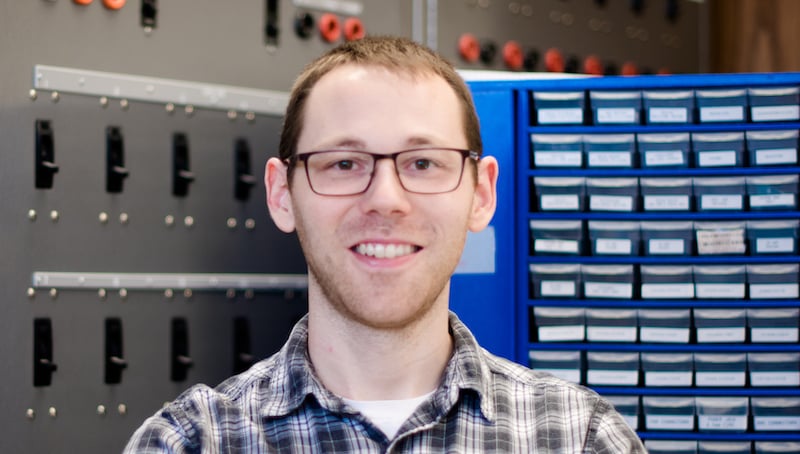
College of Engineering Dean Janet Callahan has selected Associate Teaching Professor Anthony (Tony) Pinar as the first member of this spring’s Deans’ Teaching Showcase.
Pinar will be recognized at an end-of-term luncheon with other spring showcase members, and is a candidate for the next CTL Instructional Award Series.
Capstone design in the Department of Electrical and Computer Engineering (ECE), the second-largest department in the College of Engineering, is a complex ecology formed of students, the Enterprise Program office, industry partners, faculty subject matter experts and other departments’ capstone programs. It takes someone very special to be able to balance the interests of all those constituents and maintain a robust educational experience for every possible combination of project, team and sponsor. Pinar manages it with grace and a resolute commitment to excellence. “Almost everything about the class was amazing,” one student commented. “Honestly, I believe this may be the best formatted, run and taught class I’ve taken so far at Tech.” That’s high praise from a tough audience.
The strategy Pinar takes with the ECE Senior Design applies a common framework of tasks and deliverables across all Senior Design teams and allows for relatively autonomous advisor roles. This means that all teams have overall similar capstone experiences, but faculty advisors are able to coordinate, manage and assess their teams using their own individual styles. The framework stresses the importance of objective decision-making, following appropriate engineering standards and communicating engineering problems to other engineers. The common framework also helps ensure that the program meets external assessment criteria (e.g., ABET) and also provides a mechanism for the department to assess a large number of ECE students for program improvement. Jin Choi, ECE department chair, said: “We are proud of the improvements Tony has made to make this a more effective program. The students have really benefited.”
Projects in Senior Design generally challenge the students’ technical skills. Pinar coordinates the ongoing relationships with our industry sponsors and manages expectations when necessary. He has a wealth of industry experience that provides context for the students and informs his individual coaching for students as they navigate the transition between communicating with peers and communicating in a professional environment as engineers. Teams are required to present several times throughout the yearlong project. Pinar has crafted a common rubric that allows faculty, staff and industry sponsors to evaluate the students’ technical approach as well as individual presentation skills. This provides an opportunity for meaningful feedback from a variety of perspectives. This increases the quality of our students’ technical presentation skills, and their communication skills when discussing technical topics with fellow engineers. This quality increase has been noted by our own internal faculty advisors and by members on our External Advisory Committee.
Callahan, in closing, stated: “Dr. Pinar’s hard work and expertise prepares our students for excellence. Through his efforts our graduates are well prepared not only to technically excel, but also to communicate within and beyond their team beginning from the first position they hold.”